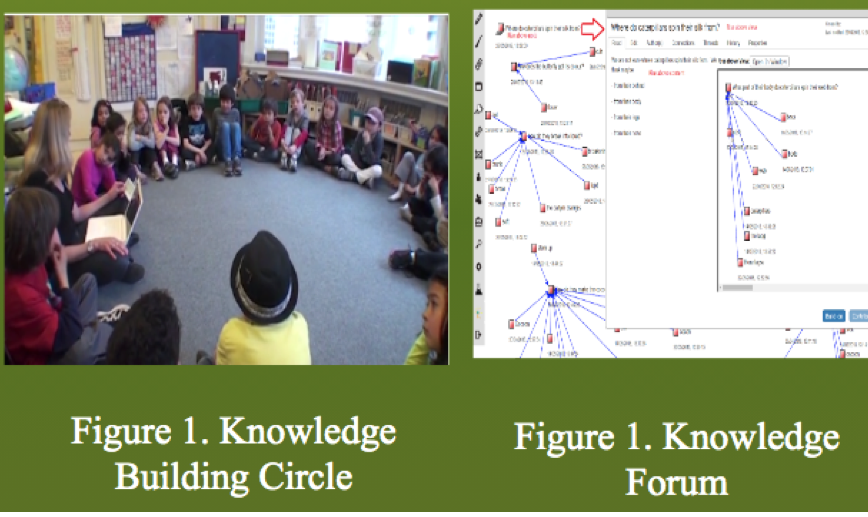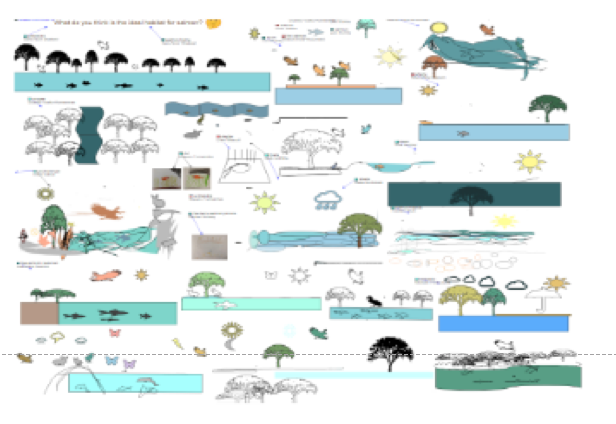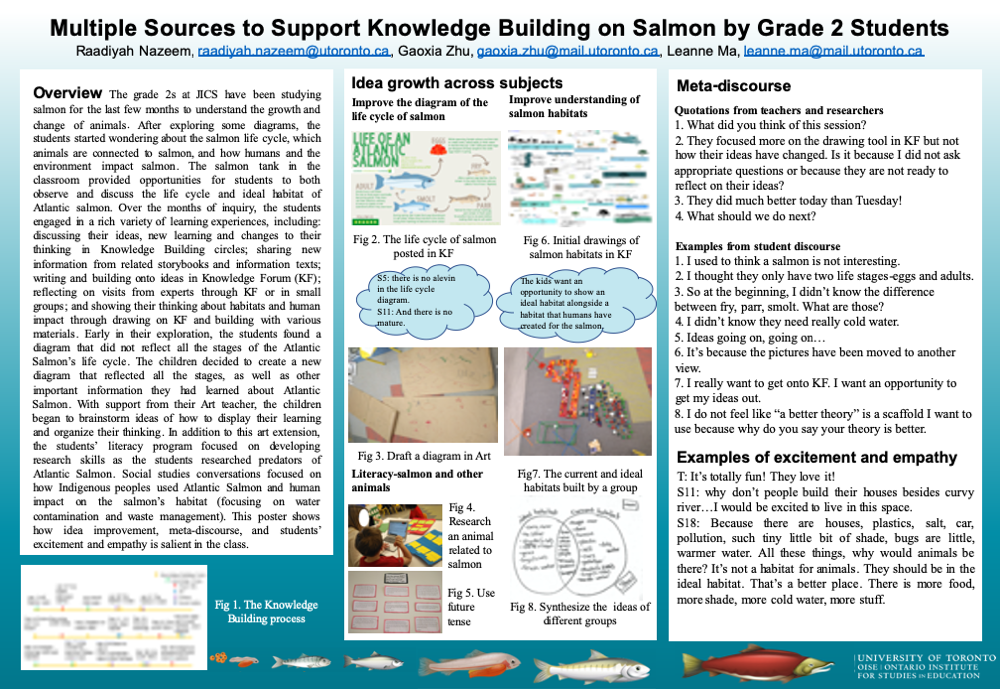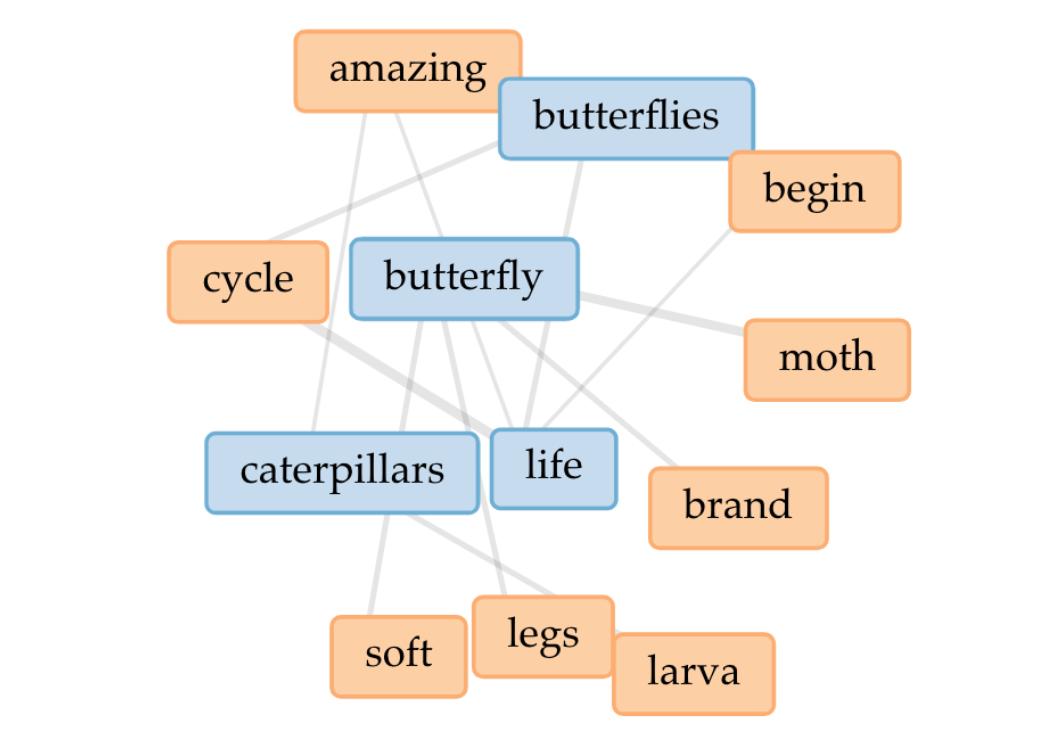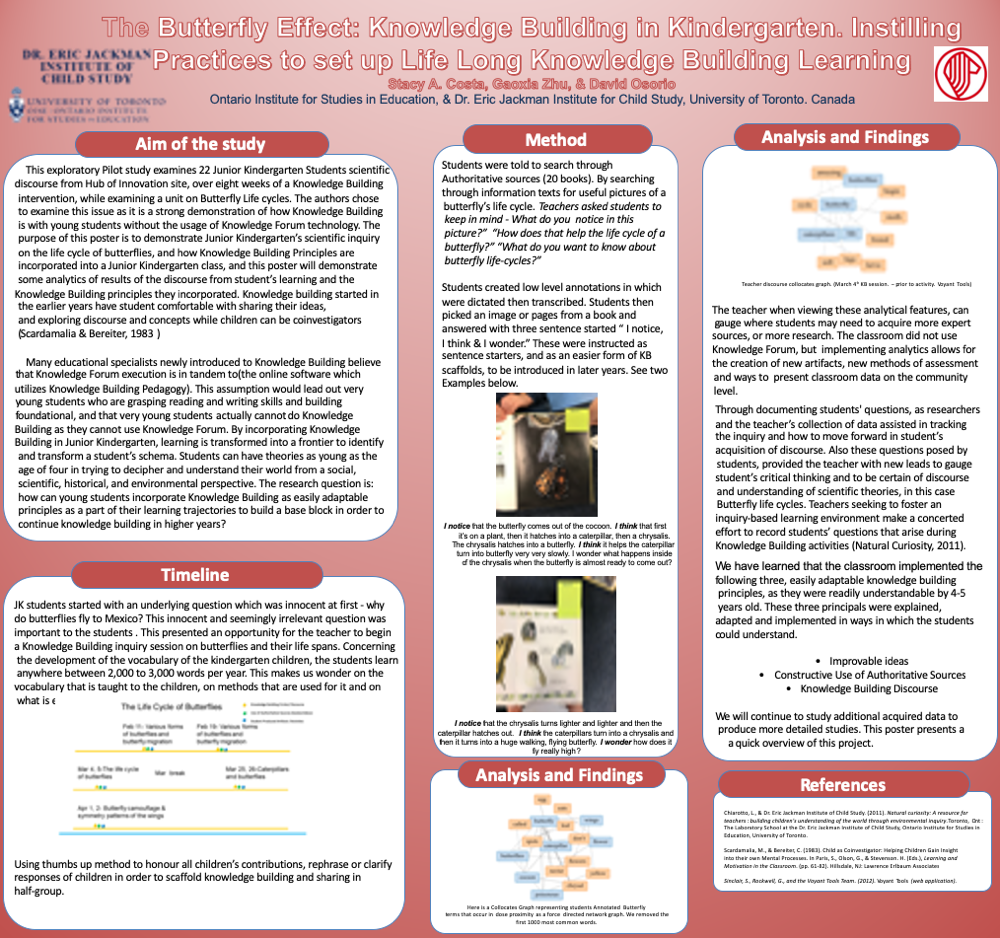Emotional and Cognitive Engagement in Knowledge Building: A Case Study of Grade 1
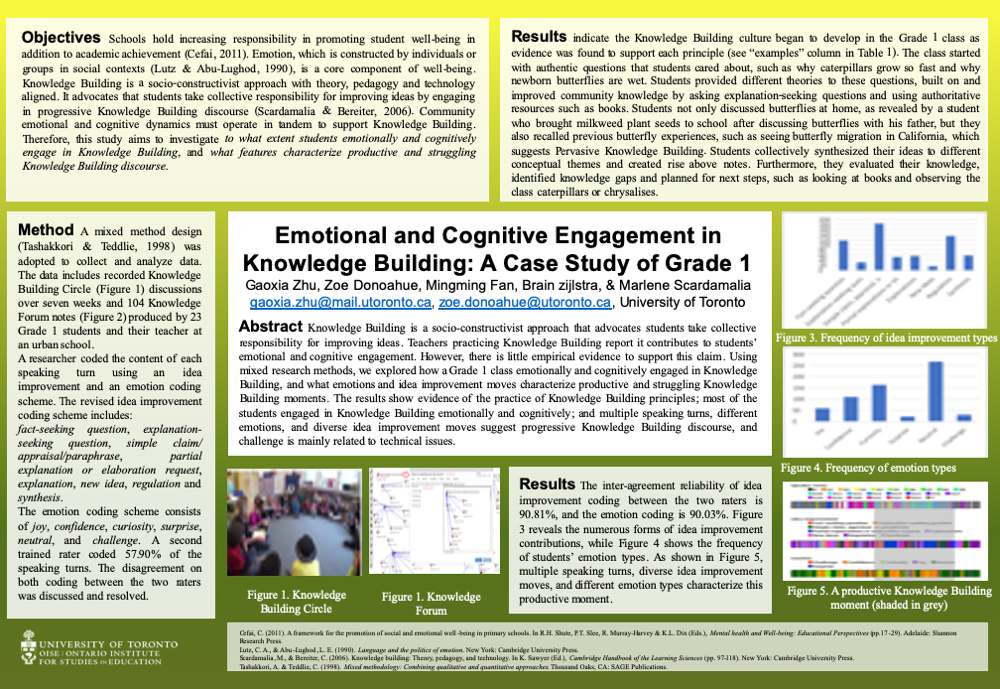
Zhu, G., Donoahue, Z., Fan, M., Zijlstra, B., & Scardamalia, M. (2019, April). Emotional and cognitive engagement in Knowledge Building circles: A case study of grade 1 students. Poster presented at the American Education Research Association (AERA). Toronto, Ontario.
Knowledge Building is a socio-constructivist approach that advocates students take collective responsibility for improving ideas. Teachers practicing Knowledge Building report it contributes to students’ emotional and cognitive engagement. However, there is little empirical evidence to support this claim. Using mixed research methods, we explored how a Grade 1 class emotionally and cognitively engaged in Knowledge Building, and what emotions and idea improvement moves characterize productive and struggling Knowledge Building moments. The results show evidence of the practice of Knowledge Building principles; most of the students engaged in Knowledge Building emotionally and cognitively; and multiple speaking turns, different emotions, and diverse idea improvement moves suggest progressive Knowledge Building discourse, and challenge is mainly related to technical issues.
